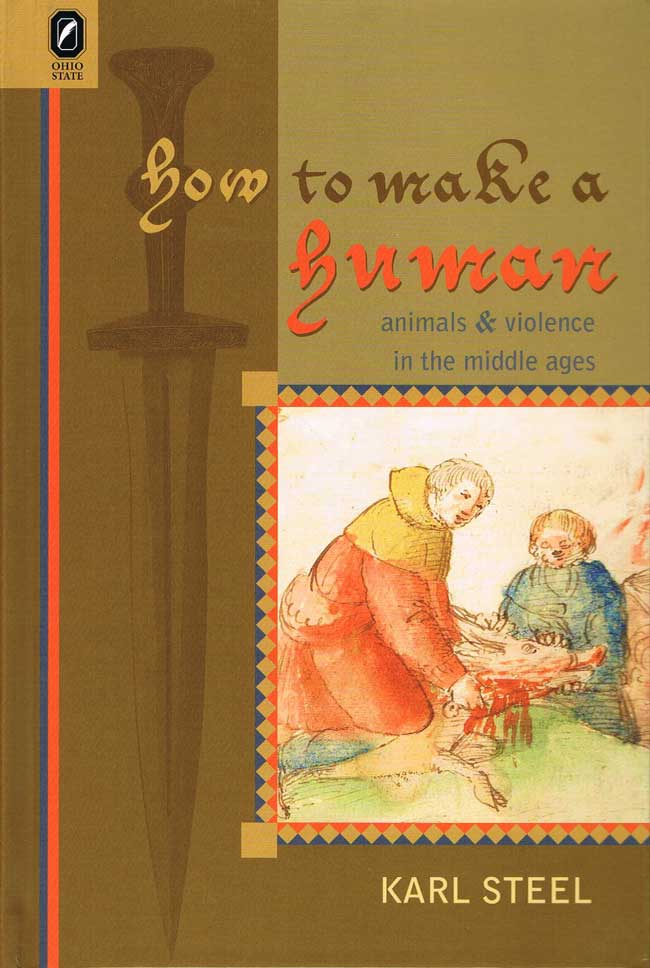How to Make a HumanAnimals and Violence in the Middle AgesKarl SteelInterventions: New Studies in Medieval Culture |
 8/11/2011 Literary Criticism/Medieval; Literary Criticism/Semiotics and Theory 292 pp. 6x9  $49.95 cloth 978-0-8142-1157-1 Add cloth to shopping cart $14.95 CD 978-0-8142-9256-3 Add CD to shopping cart Shopping Cart Instructions Review/Change Shopping Cart & Check-out | |||
|
Table of Contents
Explore More In the Middle: A Medieval Studies Group Blog Postmedieval: A Journal of Medieval Cultural Studies (special issue on “The Animal Turn”) |
“In How to Make a Human, Karl Steel uses a series of beautifully articulated readings to argue that a foundational violence against animals that defines the human is pervasively at play in medieval texts. Medieval texts define the human through violence against animals, he argues: violence secures human mastery through the submission of the animal and identifies the human as grievable, in opposition to the animal that is not. Steel moves confidently among many different primary and secondary texts and traditions, and he writes about them with remarkable clarity. The research is inventive and extensive, the examples are varied and rich and often surprising, and the analysis is based on often brilliantly insightful close readings. This book is a pleasure to read.“ —Peggy McCracken, University of Michigan “Compared to work that has already appeared on animals, How to Make a Human is more astute when it comes to theory, more careful when it comes to close reading of evidence, more eloquent in its argument, more forceful, more audacious, and more beautiful. Karl Steel is a creative thinker whose approach is fresh, unorthodox, and groundbreaking. This is an astonishing work of scholarship.” —Jeffrey J. Cohen, George Washington University How to Make a Human: Animals and Violence in the Middle Ages tracks human attempts to cordon humans off from other life through a wide range of medieval texts and practices, including encyclopedias, dietary guides, resurrection doctrine, cannibal narrative, butchery law, boar-hunting, and teratology. Karl Steel argues that the human subjugation of animals played an essential role in the medieval concept of the human. In their works and habits, humans tried to distinguish themselves from other animals by claiming that humans alone among worldly creatures possess language, reason, culture, and, above all, an immortal soul and resurrectable body. Humans convinced themselves of this difference by observing that animals routinely suffer degradation at the hands of humans. Since the categories of human and animal were both a retroactive and relative effect of domination, no human could forgo his human privileges without abandoning himself. Medieval arguments for both human particularity and the unique sanctity of human life have persisted into the modern age despite the insights of Darwin. How to Make a Human joins with other works in critical animal theory to unsettle human pretensions in the hopes of training humans to cease to project, and to defend, their human selves against other animals.
| |||


 Karl Steel
Karl Steel